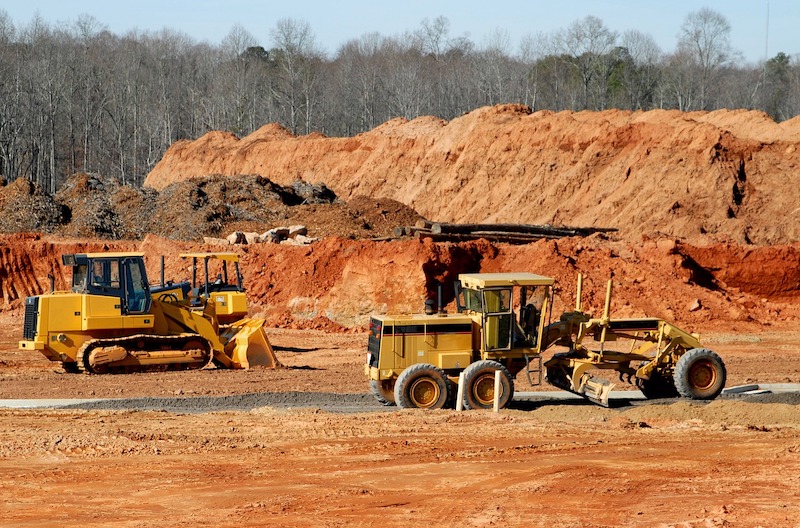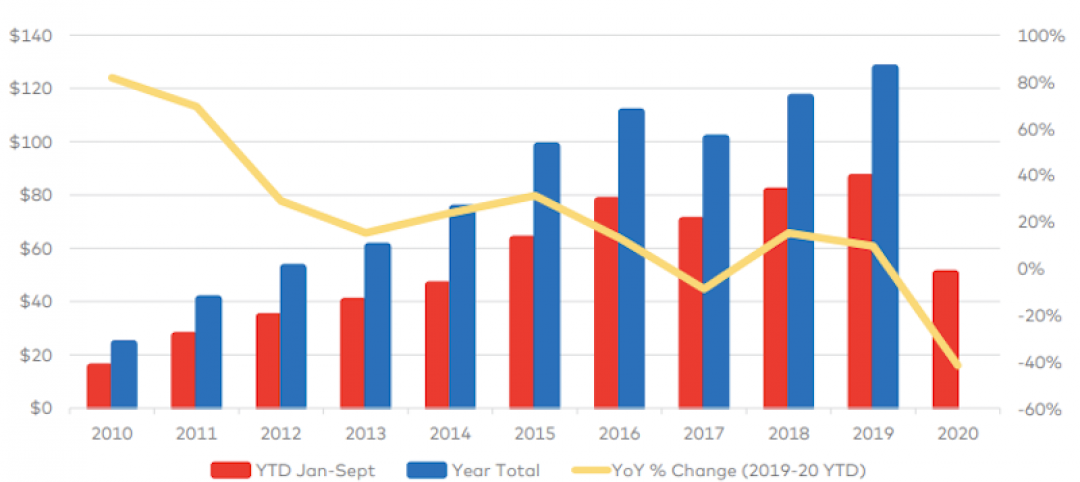Construction employment decreased from February 2020 to February 2021 in 236 of the nation’s metro areas, according to an analysis by the Associated General Contractors of America of government employment data released today, amid project cancellations, rising material prices and supply chain problems. Association officials said that the industry will struggle to add jobs in the future if a series of proposed new labor laws, including the PRO Act, were to be put into law by the current Congress and administration.
“Relatively few places have recovered from the pandemic-induced impacts on the construction industry,” said Ken Simonson, the association’s chief economist. “Project cancellations, spiking materials prices and significant supply chain challenges are making it hard for most firms to add new construction jobs compared to a year ago.”
Houston-The Woodlands-Sugar Land, Texas lost the largest number of construction jobs over the 12-month period (-37,600 jobs, -16%), followed by New York City (-26,700 jobs, -17%); Chicago-Naperville-Arlington Heights, Ill. (-12,900 jobs, -11%) and Midland, Texas (-11,600 jobs, -31%). Odessa, Texas had the largest percentage decline (-40%, -8,200 jobs), followed by Lake Charles, La. (-39%, -7,700 jobs); Midland; Longview, Texas (-23%, -3,400 jobs) and Laredo, Texas (-23%, -900 jobs).
Only 83 metro areas added construction jobs during the past 12 months, while construction employment was stagnant in 39 metro areas. Sacramento--Roseville--Arden-
Association officials cautioned that federal officials are considering a host of measures that will not only undermine proposed new infrastructure investments, but also make it harder for firms to add new employees. Foremost among those challenges are the PRO Act, which would unleash a new wave of labor instability. The measure would likely lead to a host of new strikes and jobsite disruptions that will make it hard for firms to add new employees.
“It will be hard for firms to add new employees if they have no idea whether the jobs they are working on will be shut down because of the wide range of labor actions encouraged by the PRO Act,” said Stephen E. Sandherr, the association’s chief executive officer. “New infrastructure investments will certainly help the industry, but our members won’t be able to build back better if the work is mired in labor uncertainty.”
View the metro employment 12-month data, rankings, top 10, multi-metro division, and map.
Related Stories
Market Data | Jan 4, 2021
Nonresidential construction spending shrinks further in November
Many commercial projects languish, even while homebuilding soars.
Market Data | Dec 29, 2020
Multifamily transactions drop sharply in 2020, according to special report from Yardi Matrix
Sales completions at end of Q3 were down over 41 percent from the same period a year ago.
Market Data | Dec 28, 2020
New coronavirus recovery measure will provide some needed relief for contractors coping with project cancellations, falling demand
Measure’s modest amount of funding for infrastructure projects and clarification that PPP loans may not be taxed will help offset some of the challenges facing the construction industry.
Market Data | Dec 28, 2020
Construction employment trails pre-pandemic levels in 35 states despite gains in industry jobs from October to November in 31 states
New York and Vermont record worst February-November losses, Virginia has largest pickup.
Market Data | Dec 16, 2020
Architecture billings lose ground in November
The pace of decline during November accelerated from October, posting an Architecture Billings Index (ABI) score of 46.3 from 47.5.
AEC Tech | Dec 8, 2020
COVID-19 affects the industry’s adoption of ConTech in different ways
A new JLL report assesses which tech options got a pandemic “boost.”
Market Data | Dec 7, 2020
Construction sector adds 27,000 jobs in November
Project cancellations, looming PPP tax bill will undercut future job gains.
Market Data | Dec 3, 2020
Only 30% of metro areas add construction jobs in latest 12 months
Widespread project postponements and cancellations force layoffs.
Market Data | Dec 2, 2020
New Passive House standards offers prescriptive path that reduces costs
Eliminates requirement for a Passive House consultant and attendant modeling.
Market Data | Dec 2, 2020
Nonresidential construction spending remains flat in October
Residential construction expands as many commercial projects languish.

















